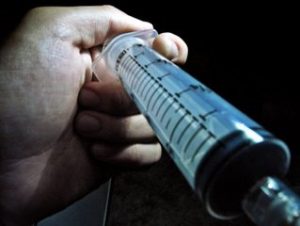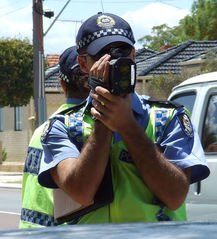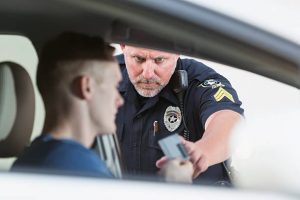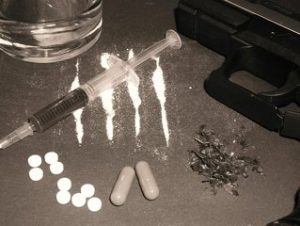 Police get frustrated when they pull over a motorist for suspicion of Driving Under the Influence of Alcohol and the driver refuses to submit to a breathalyzer test when the officer requests that they take such a test. The reason behind their frustration is because, in many cases, if they do not have a breathalyzer test result, it becomes harder for the state to prove in Court that the driver was operating a motor vehicle under the influence of alcohol.
Police get frustrated when they pull over a motorist for suspicion of Driving Under the Influence of Alcohol and the driver refuses to submit to a breathalyzer test when the officer requests that they take such a test. The reason behind their frustration is because, in many cases, if they do not have a breathalyzer test result, it becomes harder for the state to prove in Court that the driver was operating a motor vehicle under the influence of alcohol.
The Illinois Legislature has clearly given motorists the right to refuse to submit to a breathalyzer test. The Legislature has imposed a severe penalty for refusing to submit to a breathalyzer test when requested to do so by a police officer. If you refuse to submit to a breathalyzer test you will be looking at a mandatory 12 month suspension of your driver’s license. The suspension will kick-in 46 days after you are arrested for a DUI unless you are able to persuade a court otherwise.
For several years, police and prosecutors have been trying to get around a motorist’s refusal to submit to a breathalyzer test. For the past several years, Kane County has established “no-refusal” weekends. “No-refusal” weekends were centered around certain events like New Year’s Eve and Fourth of July weekends. Kane County authorities would set-up roadblocks to close off certain roads and stop every vehicle. If the police suspected that the driver of a certain vehicle was Driving Under the Influence, they would request that the driver submit to a breathalyzer test and if they refused, the police would obtain a warrant from a judge who was on the scene to force a blood draw from the driver. If the driver refused to comply with the judge’s order, the driver could be arrested and charged with Contempt of Court.
 Chicago Criminal Lawyer Blog
Chicago Criminal Lawyer Blog











 Being arrested by a police officer is something that nobody would ever want to experience. While being arrested by a police officer does not automatically mean that you will be charged with a crime, it usually means that you are suspected of committing a crime and you should be aware of what may happen and what you should do to protect yourself from what the future may hold.
Being arrested by a police officer is something that nobody would ever want to experience. While being arrested by a police officer does not automatically mean that you will be charged with a crime, it usually means that you are suspected of committing a crime and you should be aware of what may happen and what you should do to protect yourself from what the future may hold. In the past few years, the Illinois Legislature has enacted laws which make Excessive Speeding a much more serious matter than most people think. Most people are conditioned to believe that if they are pulled over for speeding they will receive a simple speeding ticket and the most that could happen to them is that they have to pay a steep fine and take a Traffic School class. The recent changes to the speeding laws have made certain Excessive Speeding tickets an actual crime. From all of the calls that I get from prospective clients, this area of the criminal law may be one of the most misunderstood subjects.
In the past few years, the Illinois Legislature has enacted laws which make Excessive Speeding a much more serious matter than most people think. Most people are conditioned to believe that if they are pulled over for speeding they will receive a simple speeding ticket and the most that could happen to them is that they have to pay a steep fine and take a Traffic School class. The recent changes to the speeding laws have made certain Excessive Speeding tickets an actual crime. From all of the calls that I get from prospective clients, this area of the criminal law may be one of the most misunderstood subjects. Last week I had a meeting with a client in my office in Schaumburg who was being charged with a felony in Rolling Meadows. The client has a lawyer who was representing him for the case. The client came in for a consultation because he was not happy with the services that his current lawyer was providing and was considering hiring me to represent him in the case. The client told me that he had spoken to his lawyer and requested copies of the police reports. His lawyer refused to provide copies of the police report and the client was very upset with that decision.
Last week I had a meeting with a client in my office in Schaumburg who was being charged with a felony in Rolling Meadows. The client has a lawyer who was representing him for the case. The client came in for a consultation because he was not happy with the services that his current lawyer was providing and was considering hiring me to represent him in the case. The client told me that he had spoken to his lawyer and requested copies of the police reports. His lawyer refused to provide copies of the police report and the client was very upset with that decision. In the past several weeks, I have spoken to several clients who were arrested for Aggravated or Excessive Speeding and were charged with a crime. Most of the people I spoke to did not realize that they could be arrested for speeding. Many people do not understand the Illinois speeding laws and how a simple speeding ticket can lead to you being arrested and facing the real possibility of having a criminal conviction appear on your record and a possible jail sentence in your future. I want to take this opportunity to try to help people understand just how drastic the consequences of a speeding ticket in Illinois can be.
In the past several weeks, I have spoken to several clients who were arrested for Aggravated or Excessive Speeding and were charged with a crime. Most of the people I spoke to did not realize that they could be arrested for speeding. Many people do not understand the Illinois speeding laws and how a simple speeding ticket can lead to you being arrested and facing the real possibility of having a criminal conviction appear on your record and a possible jail sentence in your future. I want to take this opportunity to try to help people understand just how drastic the consequences of a speeding ticket in Illinois can be. It is common to have a client come into my office who is facing criminal charges resulting from a search of their vehicle by a police officer. Many of those clients want to know whether the police had the right to search their vehicle and whether I can have the evidence that was recovered thrown out of Court. There’s no simple answer to this question. Whether the police had the right to search the vehicle and whether I can convince the Court to throw out the evidence depends on the facts of each individual case. I want to talk a little bit about the general rules and what the constitutional limits are when it comes to the police searching a motor vehicle.
It is common to have a client come into my office who is facing criminal charges resulting from a search of their vehicle by a police officer. Many of those clients want to know whether the police had the right to search their vehicle and whether I can have the evidence that was recovered thrown out of Court. There’s no simple answer to this question. Whether the police had the right to search the vehicle and whether I can convince the Court to throw out the evidence depends on the facts of each individual case. I want to talk a little bit about the general rules and what the constitutional limits are when it comes to the police searching a motor vehicle. Being pulled over by a police officer is a stressful experience. This is especially true if you know that you have been drinking alcohol. Your mind starts racing and you want to make sure that you don’t give the police officer any reason to suspect that you are under the influence of alcohol. Unfortunately, many motorists don’t really think before they open their mouth. They don’t realize that the police are not there to help them. The police have a job to do and their job begins the moment they notice your vehicle. You need to understand what the police officer is doing and how your conduct and your statements can be used against you in court.
Being pulled over by a police officer is a stressful experience. This is especially true if you know that you have been drinking alcohol. Your mind starts racing and you want to make sure that you don’t give the police officer any reason to suspect that you are under the influence of alcohol. Unfortunately, many motorists don’t really think before they open their mouth. They don’t realize that the police are not there to help them. The police have a job to do and their job begins the moment they notice your vehicle. You need to understand what the police officer is doing and how your conduct and your statements can be used against you in court. Yesterday, Kane County State’s Attorney, Joe McMahon, announced that Kane County saw a 7% increase in the number of felony cases filed by the Kane County State’s Attorney’s Office in 2017. The increase in the filing of felonies in Kane County continues a rise in the number of felony cases filed that began in 2015. In 2007, Kane County saw 3,349 felony cases filed. That number declined from that year until 2015, when 2,011 felony cases were filed in Kane County. In 2016, 2,255 felony cases were filed. In 2017, 2,413 felony cases were filed. That represents a 7% increase over 2016.
Yesterday, Kane County State’s Attorney, Joe McMahon, announced that Kane County saw a 7% increase in the number of felony cases filed by the Kane County State’s Attorney’s Office in 2017. The increase in the filing of felonies in Kane County continues a rise in the number of felony cases filed that began in 2015. In 2007, Kane County saw 3,349 felony cases filed. That number declined from that year until 2015, when 2,011 felony cases were filed in Kane County. In 2016, 2,255 felony cases were filed. In 2017, 2,413 felony cases were filed. That represents a 7% increase over 2016. One of the most common questions I get asked by people who are charged with a Domestic Battery is whether they can be guilty of a Domestic Battery if they did not hit anyone. The short answer to that question is yes. But let’s talk a little about what a Domestic Battery is and why it is very important that you hire a good Illinois Domestic Battery lawyer who knows what they are doing.
One of the most common questions I get asked by people who are charged with a Domestic Battery is whether they can be guilty of a Domestic Battery if they did not hit anyone. The short answer to that question is yes. But let’s talk a little about what a Domestic Battery is and why it is very important that you hire a good Illinois Domestic Battery lawyer who knows what they are doing. Last June, the United States Supreme Court issued a decision in a DUI case that many DUI lawyers had been closely following. The case is actually three separate cases consolidated into one case captioned, Birchfield v. North Dakota. What united all 3 cases was that they all dealt with a North Dakota law which made it an actual crime to refuse to take a breathalyzer test and a blood test when requested to do so by the police. There is no such law in Illinois. A refusal to take a breathalyzer test or blood test can result in the suspension of your driving privileges in Illinois but is not an actual crime in Illinois. However, 13 other states make a refusal to submit to a breathalyzer test or blood test a crime. Both North Dakota and Illinois have “implied consent” laws which means that when you operate a motor vehicle upon the public roads, you consent to submitting to a breathalyzer and a blood test when requested to by the police. Illinois warns you that failure to consent to a breathalyzer test could result in the suspension of your driving privileges while North Dakota warns you that failure to consent to a breathalyzer test could result in criminal prosecution. Refusing to submit to a breathalyzer or a blood test is not a crime in Illinois. The refusal to submit to such testing can only result in the suspension of your license for a period of time, usually one year, if this is your first DUI. Sometimes, refusing to submit to a breathalyzer or blood test could benefit the underlying DUI case making it harder for the state to prove their case with test results, but will not stop the suspension of your driver’s license. Refusing to submit to a breathalyzer test or a blood test is a misdemeanor in North Dakota. By making it a crime to refuse to submit to a breathalyzer or a blood test, a driver would be more likely to consent to such testing, thereby making it easier for the state to prove guilt in an underlying DUI prosecution.
Last June, the United States Supreme Court issued a decision in a DUI case that many DUI lawyers had been closely following. The case is actually three separate cases consolidated into one case captioned, Birchfield v. North Dakota. What united all 3 cases was that they all dealt with a North Dakota law which made it an actual crime to refuse to take a breathalyzer test and a blood test when requested to do so by the police. There is no such law in Illinois. A refusal to take a breathalyzer test or blood test can result in the suspension of your driving privileges in Illinois but is not an actual crime in Illinois. However, 13 other states make a refusal to submit to a breathalyzer test or blood test a crime. Both North Dakota and Illinois have “implied consent” laws which means that when you operate a motor vehicle upon the public roads, you consent to submitting to a breathalyzer and a blood test when requested to by the police. Illinois warns you that failure to consent to a breathalyzer test could result in the suspension of your driving privileges while North Dakota warns you that failure to consent to a breathalyzer test could result in criminal prosecution. Refusing to submit to a breathalyzer or a blood test is not a crime in Illinois. The refusal to submit to such testing can only result in the suspension of your license for a period of time, usually one year, if this is your first DUI. Sometimes, refusing to submit to a breathalyzer or blood test could benefit the underlying DUI case making it harder for the state to prove their case with test results, but will not stop the suspension of your driver’s license. Refusing to submit to a breathalyzer test or a blood test is a misdemeanor in North Dakota. By making it a crime to refuse to submit to a breathalyzer or a blood test, a driver would be more likely to consent to such testing, thereby making it easier for the state to prove guilt in an underlying DUI prosecution.